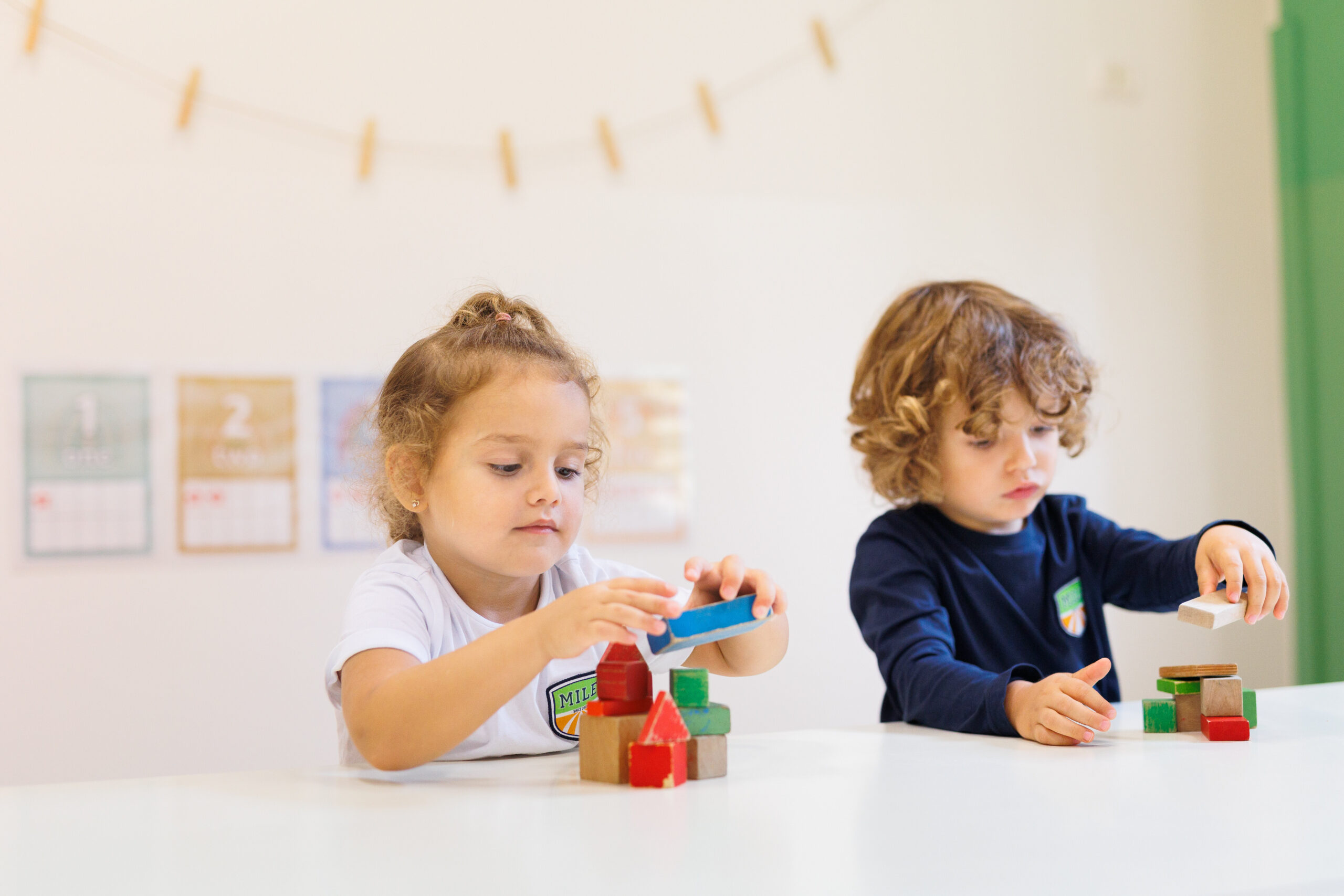
Early Years
Every day at MILE Nursery, children aged from 12 to 36 months share discoveries and enjoy new experiences together in a safe and welcoming environment.
The Nursery is a place of learning, care and shared activities which ensure every child’s physical and mental well-being and the development of their cognitive, emotional and social potential.
As a bilingual school, there is always a teacher with either English or Italian as their mother tongue in every class. Activities are related to “doing”, discovery, knowledge and social exchange with respect to individual learning styles and the family and social experiences of the children.
The formative foundation years of your child’s school experience are divided between the different educational cycles.
EARLY YEARS (CHILDREN AGED 1-2 YEARS)
English-Italian bilingual nursery where young children can play and come into contact with the world around them, in a safe and secure environment.
EARLY YEARS (CHILDREN AGED 3-4 YEARS)
International infant school based on bilingualism, which offers a first approach to the English language with playful and enjoyable activities for the children.
EARLY YEARS RECEPTION (CHILDREN AGED 5)
In the Reception class, Geo-history, science, maths and coding projects are taught in English. Particular attention is paid to the bridging project linking pre-school and our primary school so that the children can experience this delicate transition as naturally as possible.
Our learning fundamentals
- Personal, Social and Emotional Development – giving children opportunities to develop their confidence and skills in expressing themselves;
- Physical Development – providing opportunities for young children to be active and to develop their coordination and movement;
- Communication and Language – giving children opportunities to develop their confidence and skills in expressing themselves;
- Literacy – encouraging children to link sounds and letters and to begin to read and write;
- Understanding the World – guiding children to understand their physical world and their community through opportunities to explore and observe;
- Expressive Arts and Design – enabling children to explore and play with a wide range of media and materials;
- Mathematics – providing children with opportunities to develop and improve their skills in counting, understanding and using numbers.
Diary
MILE Early Years uses KinderTap, an innovative app for nurseries and kindergartens which facilitates daily communication between educational staff and families, strengthening the educational alliance by sharing photos, videos and the child’s daily file.
Facilities
The Early Years children have a wonderful opportunity to take advantage of our science, art, drama, music and ICT labs at the primary school.